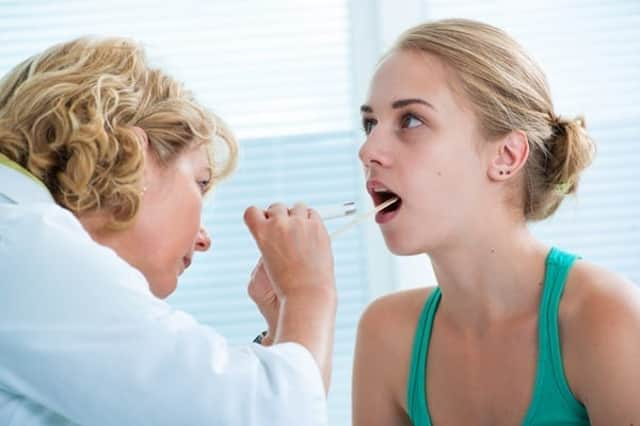Rare bacterial infection spread through sneezing and kissing leaves 12 people dead - here's how to stay safe


Strep A is in the national news agenda this week as twelve people are revealed to have died of the rare bacterial infection following a "very serious" outbreak that has spread in Essex.
There have been 32 reported cases of the disease, called invasive Group A streptococcal (iGAS) infection, across the county, with Public Health England (PHE) warning there is a high risk of further fatalities.
An ongoing outbreak


Advertisement
Hide AdAdvertisement
Hide AdThe outbreak was first reported in Braintree and has since spread to the Chelmsford and Maldon areas, the NHS Mid Essex Clinical Commissioning Group confirmed.
In a report, the clinical commissioning group said the "sometimes life-threatening GAS disease may occur when bacteria get into parts of the body where bacteria usually are not found, such as the blood, muscle, or the lungs.
It said "most of the patients affected are elderly and had been receiving care for chronic wounds in the community and care homes", adding that an incident management team has been established to "control the incident and closely monitor the situation".
Dr Jorg Hoffman, deputy director of health protection for PHE East of England, described the outbreak as "a very serious situation", stating: "This is still an ongoing outbreak. Unfortunately we have so far not been able to fully contain the situation.
Advertisement
Hide AdAdvertisement
Hide Ad"Obviously we are hoping that the efforts of our colleagues in the NHS and provider organisations are now bearing some fruit and we will be able to contain the situation and prevent further cases from happening.
"I cannot deny that there is still an ongoing risk until we can declare that this outbreak is over."
The bacterium is often found in the throat and on the skin, and can be spread through sneezing, kissing and skin contact (Photo: Shutterstock)
What is Strep A?
Group A streptococcal is a bacterium which is often found in the throat and on the skin, where it can live long enough to be spread through sneezing, kissing and skin contact.
Advertisement
Hide AdAdvertisement
Hide AdSome people may carry the bacteria without displaying any symptoms, while in others the bacterium can cause illness.
Most infections cause mild illnesses, such as "strep throat", scarlet fever or skin infections, such as impetigo or cellulitis.
The bacteria rarely infects healthy people, but if it does get into the body more serious and even life-threatening conditions, known as invasive Group A Strep, can occur.
How to prevent the spread
Depending on the severity of the symptoms, a Group A Strep infection will be treated with antibiotics, either as tablets or intravenously.
Advertisement
Hide AdAdvertisement
Hide AdIf you are admitted to hospital, the first 48 hours of treatment will be in isolation to prevent the infection being transferred.
To help prevent the spread, you should regularly wash your hands with soap and water, or use an alcohol rub during the day.
The NHS recommends always washing your hands:
before eatingafter going to the toiletafter coughing or sneezingwhen you cough or sneeze, use disposable tissues and throw these away after use
Once you have returned home, it is advised you continue to wash your hands with soap and water, carry out regular personal hygiene and ensure your family also wash their hands if they have helped care for you.